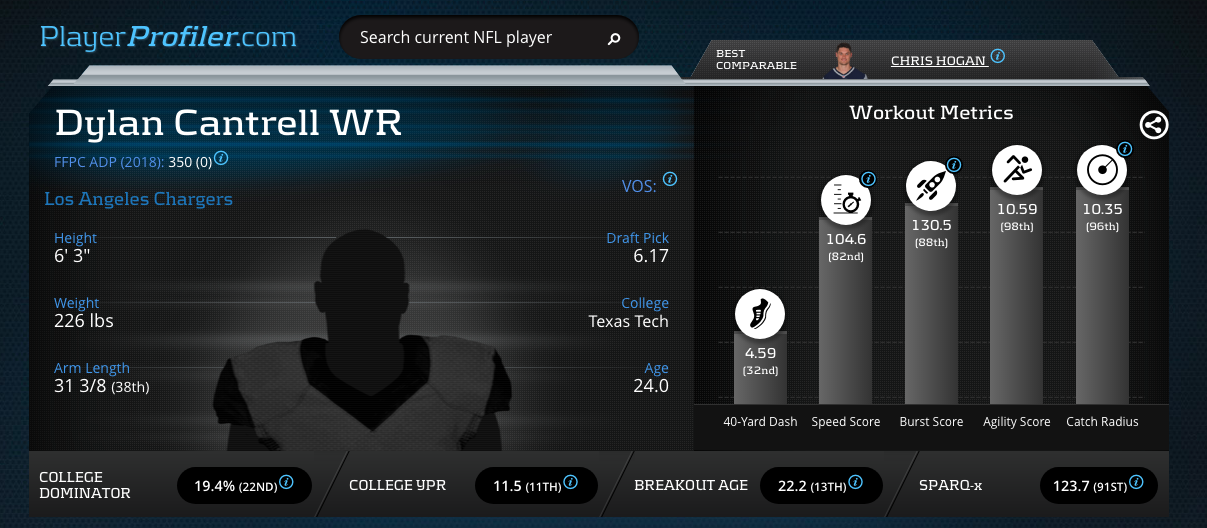May 22, 2018 was the day the music died in Los Angeles. The Chargers were poised to really make a run. Based on the advanced stats, metrics, and analytics, this was going to be their year. Their defense is now fully loaded, and their offense is as powerful as ever. They were the best team down the stretch last season but could not recover from an 0-4 start and missed the playoffs. That strong finish had many believing this was going to be their year. The AFC looks like it is up for grabs with the Patriots entering the 2018 season looking frustrated and lost. They were destined to win their division and finally prove the doubters wrong. This was going to be their year.
Then it happened.
Hunter Henry tore his ACL during practice. He was running a drill untouched. It was sudden, it was sad and it serves as another reminder that no player is invincible. Henry was poised to light it up this year. He was no longer lurking in Antonio Gates‘ plodding shadow and was finally free to ascend. Henry is not a supreme athlete, but still ranked as the seventh most productive tight end in fantasy the past two seasons, even with Gates on the team. It also happened at a bad time. Many tight end drifters, who were waiting to be picked up by teams to rekindle their careers, had already been signed. Virgil Green is now at the top of the Chargers’ tight end depth chart by default. He is entering his ninth season, and many know his name, not because of success, but because of lost potential. We can kid ourselves and say Green will finally assert himself and actually live up to the hype. We can talk ourselves into believing that his stellar athleticism will finally translate to good football play. But we know it probably won’t. So what now?
There has been a lot of talk of getting Antonio Gates back, but there’s a reason why it hasn’t happened yet. He’s done. He’s old. He’s slow. No one wins championships by stepping back. No one wins championships through nostalgia. Instead of going out and finding another has-been like Julius Thomas, the Chargers should promote from within. They have a tight end in the making right now, and he won’t cost them a thing. It’s time for the Los Angeles Chargers to convert Dylan Cantrell into a tight end for 2018. There are many reasons why, not the least of which is his advanced stats, metrics and analytics player profile.
Wide Receiver Depth
Cantrell, a sixth-round pick in the NFL draft, finds himself on a team stacked with wide receivers. Keenan Allen is elite. Tyrell Williams is a superb and efficient athlete and might be one of the most underrated receivers in the game. Mike Williams is a first-round talent who is starting the year healthy and hungry. Travis Benjamin is scary fast and versatile. Cantrell is a fifth option this year, at best, but he’s too good to be kept off the field.
Dylan Cantrell Prospect Profile
A 19.4-percent College Dominator (22nd-percentile) is not impressive and an 11.5 College YPR (11th-percentile) does not blow anyone away. However, that doesn’t tell the whole story. Texas Tech had a very balanced attack. In 2016, there were four receivers with more than 50 receptions tethered to Patrick Mahomes. Cantrell was third on the team with 58 receptions for 675 yards and eight touchdowns that year. In 2017, he improved and was only behind Keke Coutee. He had 67 receptions for 790 yards and six touchdowns last year with Nik Shomonek, a quarterback who threw for almost 1,500 fewer yards than Mahomes. There is no doubt that he would have eclipsed 1,000 yards if Mahomes was still at the helm.
Cantrell only ran a 4.59 40-Yard Dash, but has a 104.6 Speed Score that places him in the 82nd-percentile. All of his other Workout Metrics are almost literally off-the-charts. Dylan Cantrell is far and away more athletic than Hunter Henry. He’s faster, has way more burst, is much more agile and has a better catch radius. If Henry can do what he does with far less athleticism, imagine how much of an impact Cantrell could have? Cantrell is even more athletic than Rob Gronkowski, Travis Kelce and Zach Ertz in every workout metric.
The “Joker” Tight End
The biggest question looming is Cantrell’s size. He’s only 6-3 and weighs just 226-pounds. Size is definitely an issue, but remember last year’s top rookie tight end, Evan Engram, is only 6-3 and 234-pounds. Jordan Reed, who is among the best tight ends when healthy, is only 6-2 and 236-pounds. One of the most consistent tight ends in the last decade, Delanie Walker, is only 6-1 242-pounds. Cantrell needs to only put on another 10-15 pounds of bulk from now until August. That’s a lot easier than, say, asking Mike Williams to trim a tenth of a second off his 40-yard dash time or insisting that Delanie Walker grow an inch. The Joker tight end phenomenon is happening, as smaller tight ends are emerging throughout the league. Many line up like wide receivers, which wouldn’t be much of a stretch for Cantrell.
https://www.youtube.com/watch?v=jthq4pnDRxM
Size is also only really important when it comes to blocking, and Dylan Cantrell can block. He was considered one of the best blocking wide receivers in the draft. That is something that might not resonate much for the wide receiver position, but as a tight end, it could mean everything.
Conclusion
It seemed redundant that the Los Angeles Chargers picked another big-bodied wide receiver in the draft, since they already had Mike Williams. However, maybe the Chargers were more insightful than even they knew. Dylan Cantrell is too athletic and valuable to be kept off the field as a wide receiver. As a sixth-round pick, he could end up being the value of the draft for the Chargers. With Hunter Henry out for the year, it would only make sense for Cantrell to switch to tight end and show the league how talented he is and how dominant he could be. As a tight end on a prolific offense, he could be the rookie that tears it up on fantasy teams in 2018.



